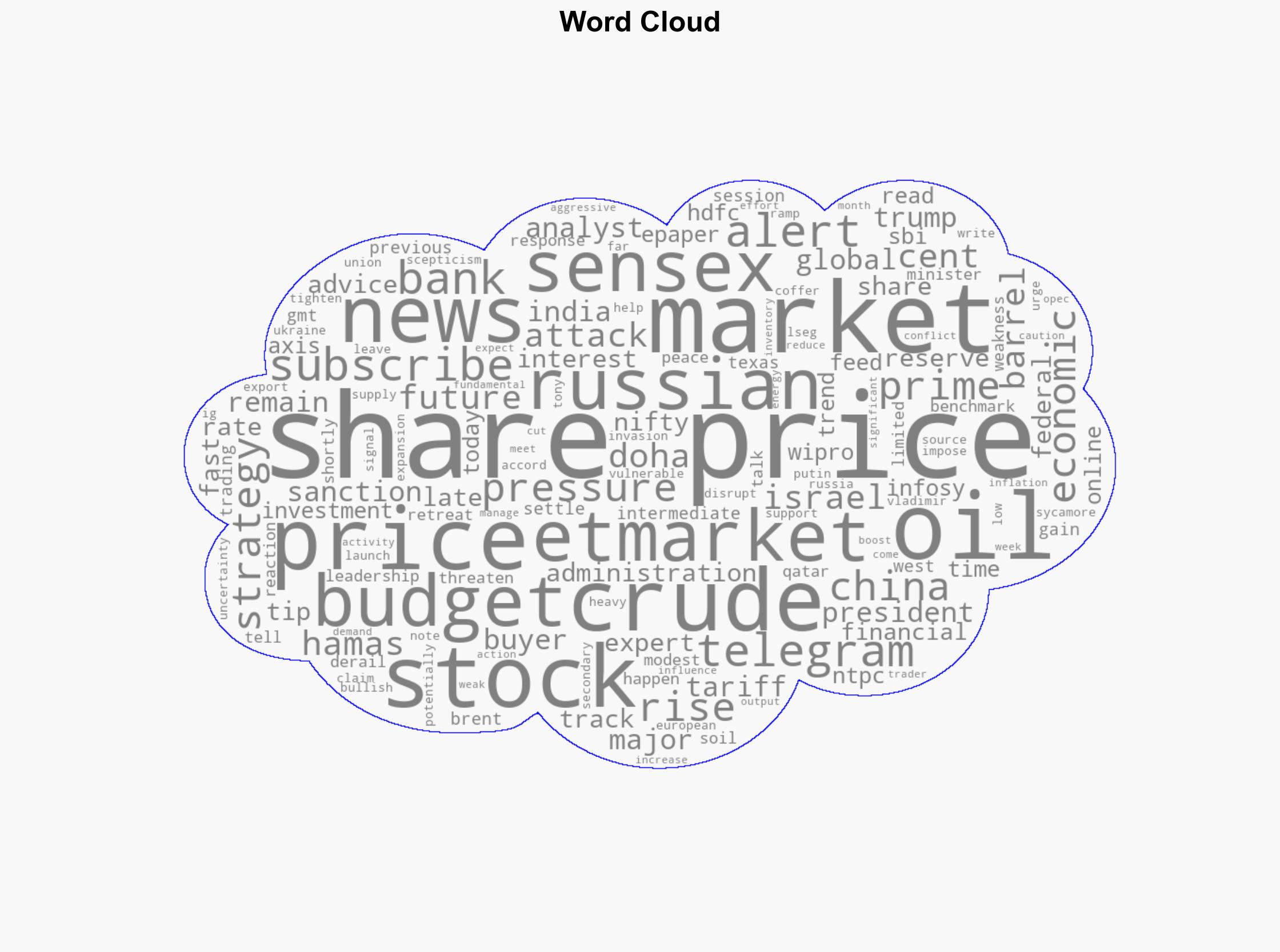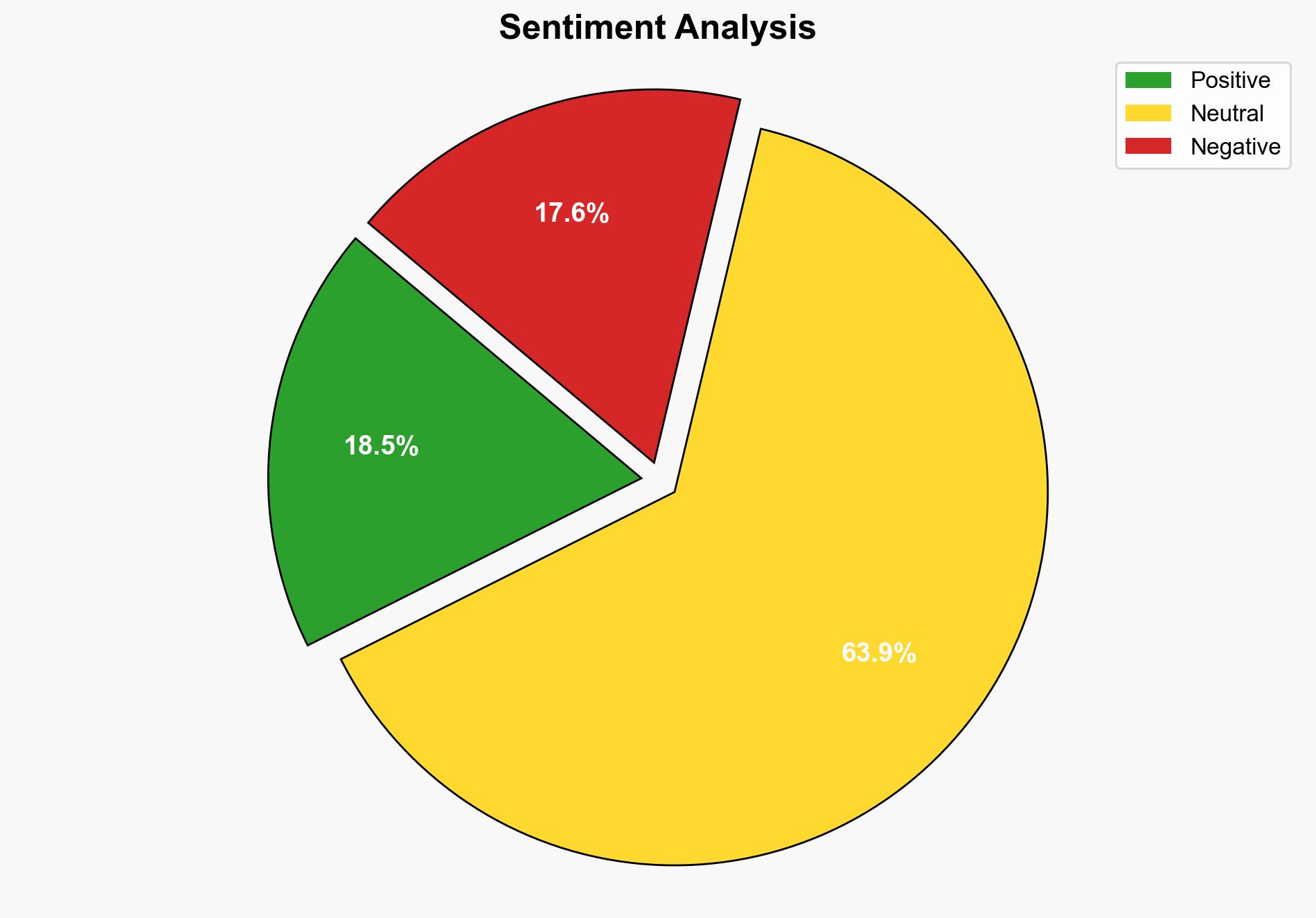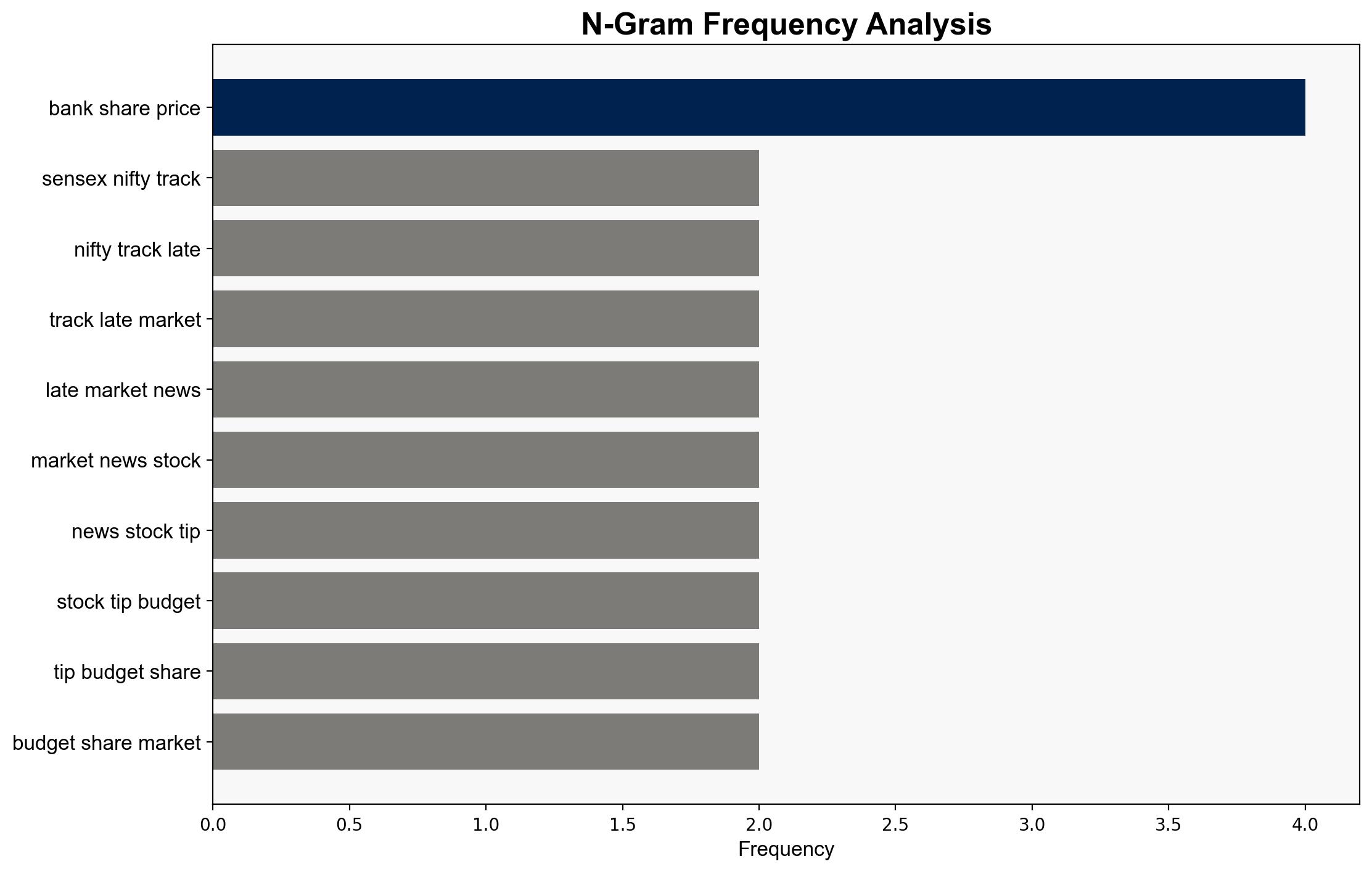Oil prices rise after Israeli attack on Qatar Trump’s Russia tariff push – The Times of India
Published on: 2025-09-10
Intelligence Report: Oil prices rise after Israeli attack on Qatar Trump’s Russia tariff push – The Times of India
1. BLUF (Bottom Line Up Front)
The most supported hypothesis is that the rise in oil prices is primarily driven by geopolitical tensions following the Israeli attack on Qatar and the potential for increased sanctions on Russian oil by the U.S. This hypothesis is supported by the immediate market reactions and the strategic interests of involved nations. Confidence level: Moderate. Recommended action: Monitor geopolitical developments closely and assess potential impacts on global oil supply chains.
2. Competing Hypotheses
1. **Hypothesis A**: The rise in oil prices is primarily due to the Israeli attack on Qatar, which has heightened geopolitical tensions and threatened regional stability, leading to market speculation and price increases.
2. **Hypothesis B**: The increase in oil prices is mainly driven by the U.S. administration’s push for tariffs on Russian oil, potentially disrupting Russian exports and tightening global supply, thereby causing price hikes.
Using ACH 2.0, Hypothesis A is better supported by immediate market reactions to the attack and historical patterns of price volatility following geopolitical incidents. Hypothesis B, while plausible, lacks immediate evidence of policy implementation and its direct impact on current prices.
3. Key Assumptions and Red Flags
– **Assumptions**:
– Hypothesis A assumes that the market reacts primarily to geopolitical events.
– Hypothesis B assumes that the U.S. can effectively implement and enforce tariffs on Russian oil.
– **Red Flags**:
– Lack of concrete evidence on the implementation of U.S. tariffs.
– Potential bias in attributing price changes solely to geopolitical events without considering other market factors.
4. Implications and Strategic Risks
– **Economic**: Sustained high oil prices could exacerbate global inflationary pressures, impacting economic recovery efforts.
– **Geopolitical**: Escalation of tensions in the Middle East could lead to broader regional conflicts, affecting global energy markets.
– **Strategic Risks**: Potential for retaliatory actions by affected nations, leading to further market instability.
5. Recommendations and Outlook
- Monitor geopolitical developments in the Middle East and U.S.-Russia relations closely to anticipate further market disruptions.
- Engage in diplomatic efforts to de-escalate tensions and stabilize oil markets.
- Scenario Projections:
- Best: Rapid de-escalation leads to stabilization of oil prices.
- Worst: Prolonged conflict and sanctions lead to sustained high prices and economic downturn.
- Most Likely: Continued volatility with intermittent price spikes driven by geopolitical events.
6. Key Individuals and Entities
– Israeli Prime Minister
– Qatari Prime Minister
– U.S. President
– Russian President Vladimir Putin
– Major oil market analysts and traders
7. Thematic Tags
national security threats, geopolitical tensions, energy markets, economic impact




